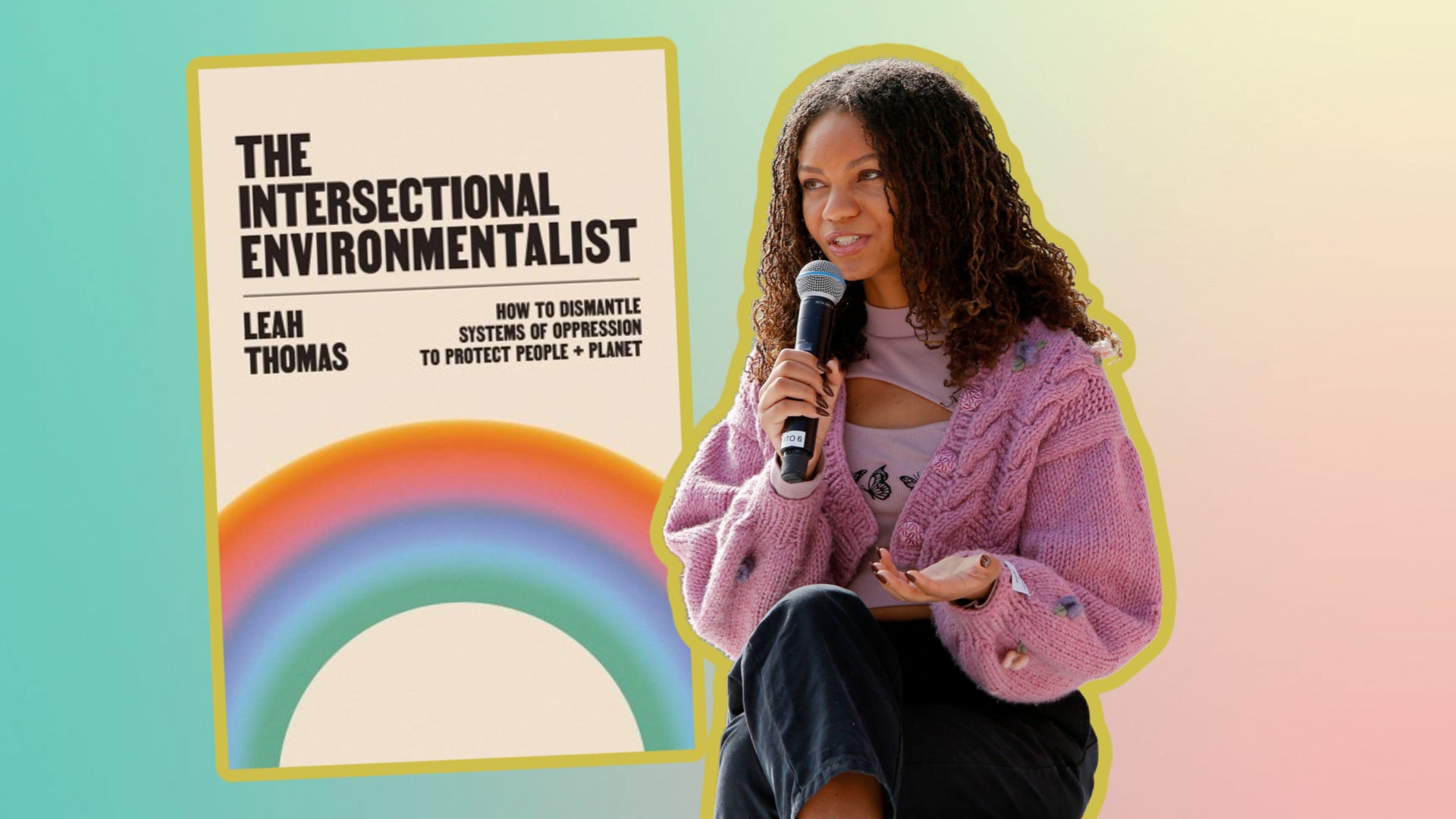Leah Thomas of Intersectional Environmentalist on Social Justice and Plant-Based Eating

(Photo: Photo of Leah Thomas: Rachel Murray/Getty Images for Teen Vogue)
In her recently released book, The Intersectional Environmentalist: How to Dismantle Systems of Oppression to Protect People and Planet, environmentalist Leah Thomas offers the blueprint for an equitable path toward a more sustainable future and features insights and stories from 30 contributors. The book represents just the latest step in her work in the intersectional environmentalist movement.
Thomas began this journey in May 2020 when she was trying to process the police killing of George Floyd and was jarred to realize that social justice and environmental justice were often seen as separate issues and not inherently intertwined. Kimberlé Crenshaw’s term “intersectionalism” precisely summed up what Thomas saw was missing in the mainstream environmental movement.
She posted a graphic on Instagram that repeated the phrase “Environmentalists for Black Lives Matter.” The subsequent slides featured her definition of intersectional environmentalism (IE) and a pledge to be taken by her 233,000 followers to stand with BIPOC communities “impacted daily by both social and environmental injustice.”
Soon after her viral call-to-action, she co-founded a climate justice group, Intersectional Environmentalist, and launched an Instagram account by the same title that has amassed 422,000 followers. The 27-year-old has penned stories about creating an anti-racist environmental movement for Playboy, Vogue, and ELLE, appeared at global climate conferences, and become a visible leader and expert. She chatted with me to discuss the themes of her book, including an intersectional approach to plant-based diets.
How do you define intersectional environmentalism?
Intersectional environmentalism is an approach to environmentalism that’s inclusive and advocates for the protection of both people and the planet. Intersectional environmentalism seeks to amplify historically unheard voices in the climate space.
Why is it essential for social justice reform to be part of environmentalism?
Environmentalism has been framed around the protection of animals and conservation, which is so important, but we often forget that humans are also animals and that we’re a part of nature. Just like there are endangered animals, there are endangered humans whose lives are at stake because of social and environmental injustices, like not having access to clean air or water and being exposed to environmental hazards.
How is environmental activism reflected in the way you eat?
Growing up, my mom was pescetarian and I had a primarily plant-based diet. When I was studying Environmental Science I started realizing the negative environmental impacts of the meat and dairy industry. Global greenhouse gas emissions from the meat and dairy industry are extreme. I’ve shifted from being pescatarian to vegetarian to vegan and everything in between. Right now, I’m primarily plant-based. Being plant-based is one of the best diets to have for the planet.
Why is it important to acknowledge the plant-based culinary customs of cultures around the world?
It frustrates me when people reframe veganism as a ‘white thing’ that’s happening in the Global North. Certain religions in India and other places already have a vegetarian or vegan diet. Take Jainism, they sweep the ground as they walk because they’re trying not to step on any bugs or animals and they care so deeply about other organisms in the world. Rastafari people in Jamaica follow a plant-based Ital diet as a part of their spiritual practice.
What are the accessibility concerns of the veganism movement?
The colonization of spices and superfoods like quinoa have been co-opted for the Global North with no recognition of the cultural significance or the origin of the foods. I love lentils so much and learning about the history of dahl was super important to me. When things like açai and quinoa get trendy it increases the demand for those things putting a strain on the Earth when farmers try to grow it as fast as possible.
When superfoods from communities of color become popular globally the prices for those items start to skyrocket and then lower-income people needing access to their cultural foods have to pay more. We need to ensure that these items are accessible because even if they become trendy, people who are culturally connected to these items should still be able to afford them.
There are also accessibility concerns because many communities are living in food deserts where they primarily have fast food.
Is it a misconception that you have to be wealthy to be plant-based?
I think that it’s unfair that people think that veganism is expensive. It’s because of the commodification of superfoods. People overcharge for jackfruit and vegan cheeses which makes veganism seem super inaccessible.
Why must there be more BIPOC representation in the mainstream vegan movement?
A lot of the documentaries feature wealthy white people talking about kale and being extreme about veganism. This may not encourage people of color, but if they saw representation and it was connected to their cultural values, that could demystify plant-based diets. Regardless of having no mainstream representation, the Black community is one of the highest rising groups of vegans and vegetarians in the United States. Imagine what it would look like if there were also mainstream representation.
It’s not just important because I’m trying to convince more people to have plant-based diets, but because I don’t want veganism to be positioned as some quirky, wealthy white thing, when there are so many health benefits. A lot of Black and Brown communities are struggling with health issues because of their diets. So it’s also a survival thing in addition to all the environmental benefits.
RELATED: Haile Thomas Wants to Share the Joy – and Power – of Plant-Based Eating
Get more of what you love from VT. Follow us on Instagram, Facebook, and Twitter, and sign up for our email newsletters.